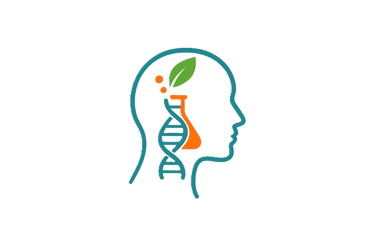Epigenetic Insights & Alzheimer’s Disease: Where We Are Now
HEALTHIER LIFESPAN
Team Alpha


When my dad was diagnosed with Alzheimer’s disease, I found myself asking the same questions so many families do: What treatments are available? Will he be able to benefit from the breakthroughs we keep reading about?
It’s a tough reality — Alzheimer’s currently has no cure. The best we can do right now is slow its progression with the few drugs that have been approved by the U.S. Food and Drug Administration (FDA), like donanemab (Kisunla) and lecanemab (Leqembi), which target amyloid proteins in the brain. But there’s growing excitement in another area of research: epigenetics.
This field is opening doors to treatments that go beyond plaques and tangles, and instead focus on how our genes are switched on or off over time. If you, like me, are navigating a loved one’s diagnosis, understanding where we are with epigenetic therapy can give both perspective and hope.
What Does “Epigenetics” Mean in Alzheimer’s?
We often think of genetics as the “fixed code” of DNA we inherit from our parents. Epigenetics, on the other hand, is like the software that controls how that code is read. It doesn’t change the letters of DNA, but it does influence whether a gene is active or silent.
In Alzheimer’s, scientists have discovered striking patterns of epigenetic changes:
DNA methylation: chemical “tags” that turn genes on or off. Studies have shown altered methylation patterns in brain regions most affected by Alzheimer’s (Nature).
Histone modifications: changes to proteins that DNA wraps around, which can either tighten or loosen gene activity. Lower levels of histone acetylation have been linked to reduced brain-protective functions.
Non-coding RNAs: tiny regulators like microRNAs that fine-tune how genes work. These are often disrupted in Alzheimer’s brains.
All of these changes may play a role not only in how the disease develops but also in how fast it progresses.
How Could Epigenetics Lead to New Treatments?
Because epigenetics controls whether certain genes are expressed, it gives researchers a way to “reset” faulty activity in brain cells. Some promising strategies include:
Targeting enzymes: Drugs that inhibit enzymes like histone deacetylases (HDACs) or LSD1 (a demethylase) are being studied. One such drug, vafidemstat (ORY-2001), is in clinical trials for Alzheimer’s. Early studies suggest it might reduce inflammation and protect brain cells.
APOE modulation: The APOE4 gene variant is the biggest known genetic risk factor for late-onset Alzheimer’s. Researchers have shown that adjusting epigenetic activity can lower APOE expression in lab models. If this translates to humans, it could dramatically change risk profiles. (Neurology Live)
Lifestyle as epigenetic therapy: Sleep, diet, exercise, and stress directly affect epigenetic marks. Polyphenols in foods, B-vitamins, and regular physical activity are all linked to healthier gene expression patterns. In other words, everyday choices act as subtle but powerful epigenetic therapies.
What’s FDA-Approved Today — And What Isn't
This is where it can feel frustrating. Despite the hype, no epigenetic therapy has yet been approved by the FDA for Alzheimer’s disease. The current approved drugs, like Leqembi and Kisunla, focus only on amyloid plaques.
Epigenetic drugs are still in the experimental stage, either in preclinical work or early-phase clinical trials. For families like mine, this means we can’t yet access them for our loved ones. But it’s important to remember: every FDA-approved therapy today started in the lab and went through these same early steps. The momentum is real.
For updates, you can follow progress directly on FDA.gov, or dive deeper into the science at Nature and Alzheimer’s Research UK.
Are We Too Late for My Dad?
This is the question that keeps me up at night. My dad is in the mid-stages of Alzheimer’s. Will he live to see epigenetic therapies make it out of trials?
The honest answer: probably not. These therapies are still years away from broad clinical use. But that doesn’t mean the research is irrelevant for us. Here’s why:
Hope for future generations: If not my dad, then maybe me, my children, or yours could benefit from these breakthroughs.
Insights for prevention: Even without a prescription drug, understanding epigenetics helps us act today. Supporting healthy methylation with nutrition, managing stress, exercising regularly — these things matter.
Inspiration for better care: Knowing the brain can be influenced at the molecular level motivates me to stay consistent with lifestyle practices that support my dad’s resilience.
So while it hurts to accept that he may miss this wave, it also reminds me that he is part of the reason this progress is happening at all — because patients like him join trials, donate data, and inspire the work.
Challenges on the Road Ahead
Epigenetic therapies are not without risks or hurdles:
Causation vs. correlation: We don’t always know if the epigenetic changes we see in Alzheimer’s cause the disease or are just side effects.
Targeting the right cells: A therapy needs to act in the right brain regions and cell types without triggering unwanted effects elsewhere.
Safety: Turning genes on or off too broadly could accidentally activate harmful pathways, such as cancer risks.
Timing: Starting treatment early (before major brain damage occurs) may be critical. That makes better early detection tools, like blood-based methylation biomarkers, even more urgent
Looking Ahead
Despite these challenges, I believe the next decade will bring real breakthroughs:
Blood tests based on epigenetic signatures may allow doctors to identify risk years before symptoms start.
Combination therapies — pairing amyloid drugs with epigenetic modulators and lifestyle medicine — may prove more effective than any single approach.
Precision epigenome editing (using tools like CRISPR-based systems) may one day allow us to silence harmful genes like APOE4 or activate protective ones in specific brain cells.
It won’t happen overnight. But each step is progress toward a future where Alzheimer’s isn’t an inevitable part of aging.
Final Thoughts
When I first started learning about epigenetics and Alzheimer’s, I hoped it meant my dad could be treated right now. The reality is, he likely won’t benefit directly from these therapies — and that’s hard to accept.
But here’s what I hold on to: epigenetics gives us a way to fight back, not just for patients today but for the generations that follow. And in the meantime, it gives us insights we can apply through lifestyle choices, better prevention, and greater awareness.
So, no, my dad may not see the full benefit of these discoveries. But because of the science happening today, fewer sons and daughters in the future will have to ask the same heartbreaking question I did.
Insights
Expert guidance for health-conscious professionals.
Support
Connect
info@genthealthhub.com
© 2025. All rights reserved.
